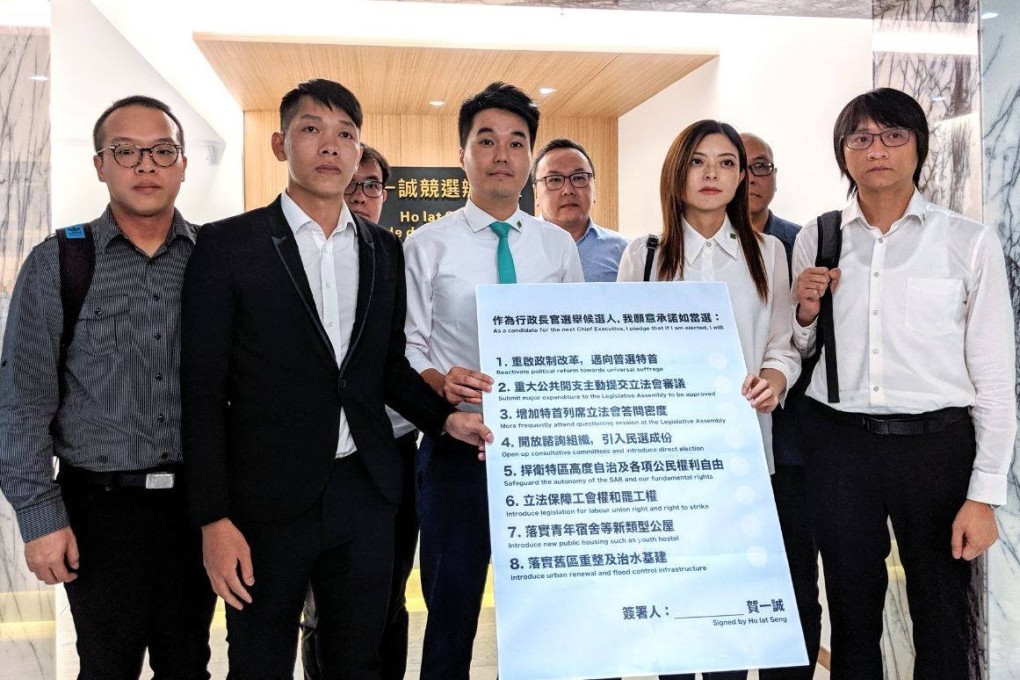Advertisement
Macau poll finds support for universal suffrage to elect city’s chief executive; vote organisers faced threats and attacks
- Almost all respondents to the unofficial online poll supported a change from the current system, which sees the chief executive chosen by committee
- But the pro-democracy group behind the vote said some of its members had been harassed, insulted and even physically attacked
Reading Time:3 minutes
Why you can trust SCMP

About 94 per cent of Macau residents who responded to an unofficial online poll said that the city’s chief executive should be elected by universal suffrage.
According to the results revealed by pro-democracy group the New Macau Association, 5,698 people – in a city of about 670,000 residents – cast a vote. Among them, 5,351 supported universal suffrage, 236 said the chief executive should not be elected via that method and 111 abstained.
The results were released on Monday after the pro-democracy group unexpectedly suspended voting on Friday night, citing technical problems with its online platform.
Advertisement
The poll was supposed to run until Sunday – the same day that a 400-member committee chose Ho Iat-seng as the city’s new chief executive.
Macau pro-democracy website suspends vote on universal suffrage
Sulu Sou Ka-hou, leader of the New Macau Association, told the South China Morning Post that members of his group had been insulted and physically attacked while raising awareness of the poll – which was launched on August 11 – on the streets of Macau.
Advertisement
Select Voice
Select Speed
1.00x